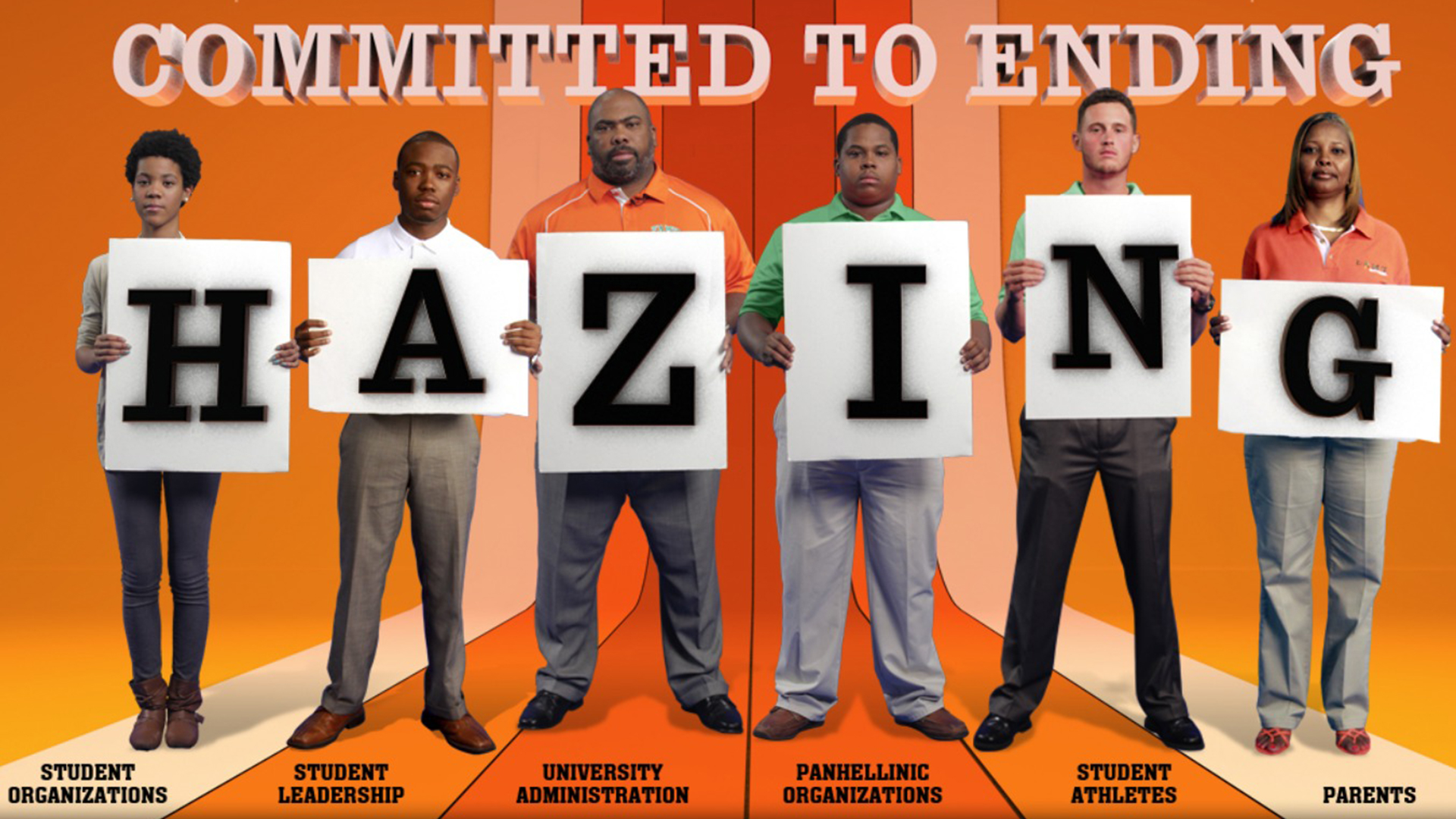|
|
Help Us Eliminate Hazing |
|
|
|
As a FAMU student, you can make a difference in ending hazing on campus. REPORT HAZING →
FAMU Police Department To report an emergency or a dangerous situation that is underway, CALL 911 for immediate police response. |
|
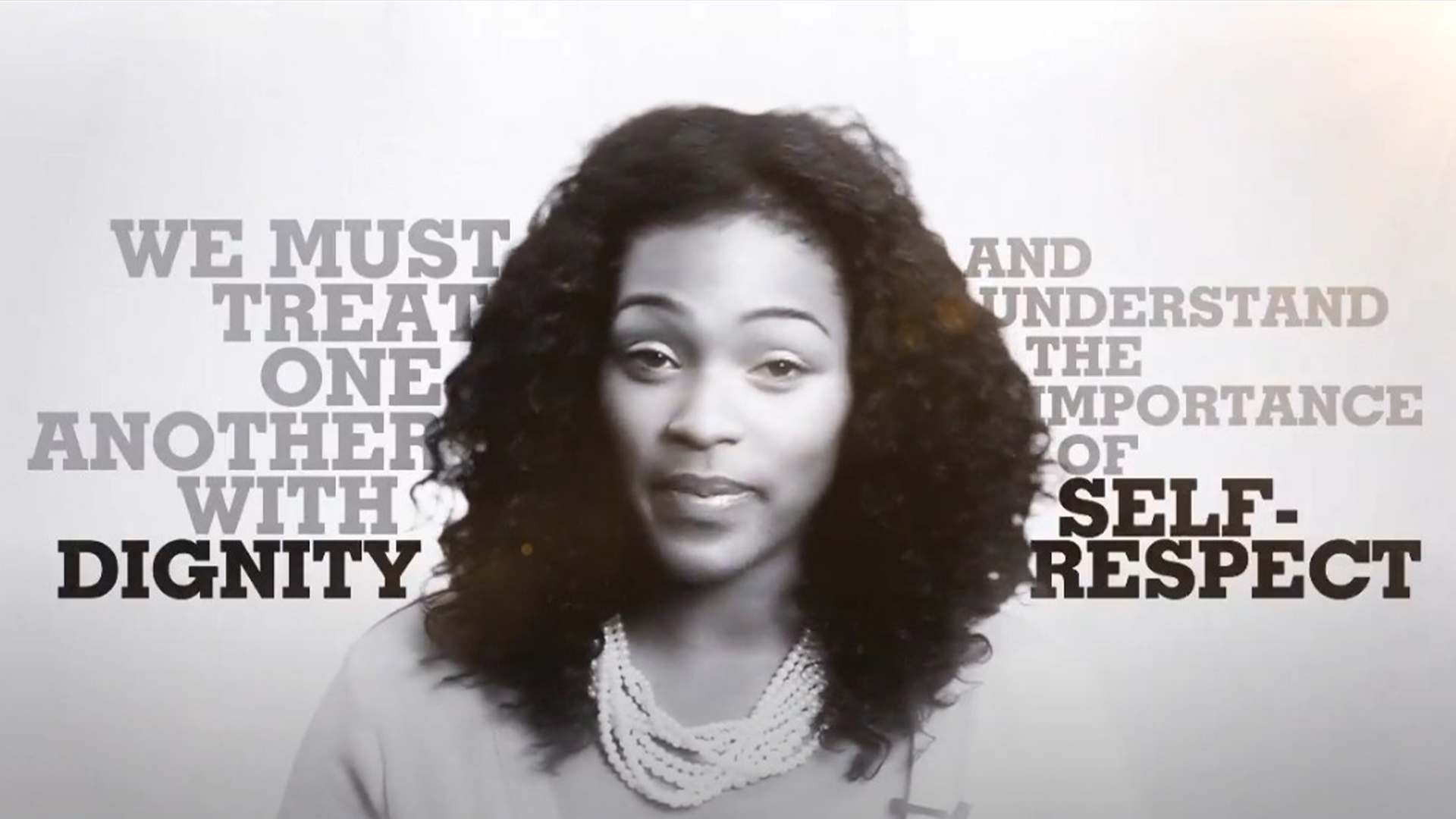
Florida Law on Hazing
In the state of Florida, hazing is a criminal offense. A person commits hazing, a third degree felony, when he or she intentionally or recklessly commits any act of hazing upon another person who is a member of or an applicant to any type of student organization and the hazing results in serious bodily injury or death of such other person. A person commits hazing, a first degree misdemeanor, when he or she intentionally or recklessly commits any act of hazing upon another person who is a member of or an applicant to any type of student organization and the hazing creates a substantial risk of physical injury or death to such other person.
What is Hazing?
- Defined as an abusive, often humiliating, form of initiation into a group, hazing
is not only dangerous, it is illegal. Hazing is any action or situation that recklessly or intentionally endangers the mental
or physical health or safety of a student for purposes including, but not limited
to, initiation or admission into or affiliation with any organization operating under
the sanction of a postsecondary institution.
"Hazing" does not include customary athletic events or other similar contests or competitions or any activity or conduct that furthers a legal and legitimate objective. -
What Does Hazing Look Like?
Hazing includes, but is not limited to:
• pressuring or coercing the student into violating state or federal law
• any brutality of a physical nature, such as whipping, beating, branding, exposure to the elements,
• forced consumption of any food, liquor, drug, or other substance
• other forced physical activity that could adversely affect the physical health or safety of the student
• any activity that would subject the student to extreme mental stress, such as sleep deprivation, forced exclusion from social contact, forced conduct that could result in extreme embarrassment, or other forced activity that could adversely affect the mental health or dignity of the student.
The Truth About H.A.Z.I.N.G

-
H is for Humiliation
MYTH: Humiliation by hazing makes you humble.
The truth is humiliation is a deliberate act that destroys your self-esteem through public embarrassment. It doesn't make you a better person, and it definitely doesn't build unity in any way. 
- A is for Abuse
MYTH: Hazing is okay as long as it doesn't cause any physical harm.
Incorrect! Punching, paddling, and any other forms of physical abuse are wrong. Still, the the reality is that mental and emotional abuse are just as dangerous, damaging, and life-threatening. Verbal abuse can be just as brutal, and leave psychological scars that may last a lifetime. 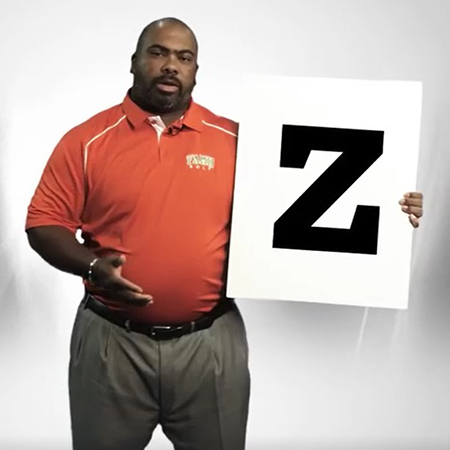
- Z is for Zero Tolerance
MYTH: Hazing is an acceptable university tradition.Wrong! Hazing is about power and control, not fairness, excellence, sisterhood/ brotherhood, or any of the values essential to FAMU's mission as an institution of higher learning. FAMU has a zero tolerance policy for hazing on its campuses, no exceptions! If you are caught in the act, or found guilty of hazing, you can be dismissed from the university and face criminal charges. 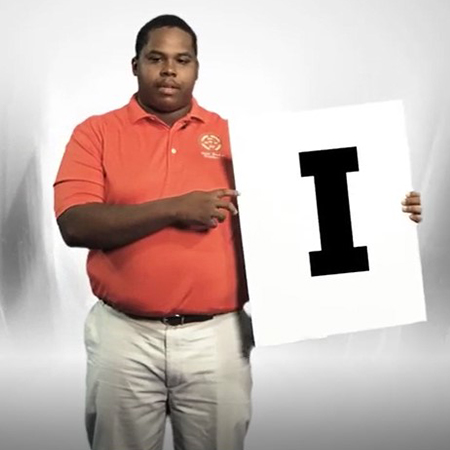
- I is for Intimidation
MYTH: One person can't possibly make a difference.
Yes, you can! Don't be intimidated. If you or someone you know is being hazed, speak up and let your voice be heard. Don't keep silent out of fear or for the sake of "tradition." If one person stands up, others will follow.
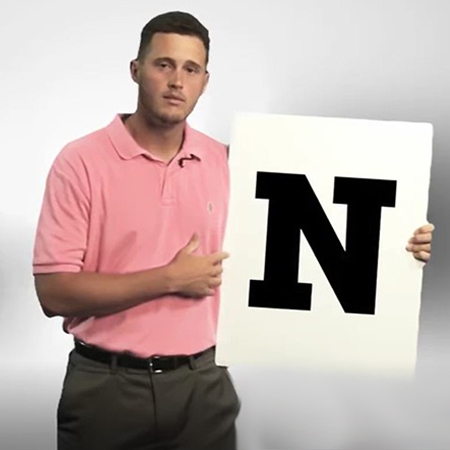
-
N is for Name-Calling
MYTH: Name calling doesn't really hurt anyone.That's not true. Name calling is a form of bullying. It's never constructive, it doesn't build character, and it doesn't make you better. Whether done online or face-to-face, name calling is negative. You should never let yourself be belittled just because you wish to join an organization.

- G is for Game Changer
MYTH: Hazing is a part of the College experience.Not for my child! Parents don't send their children to college to be hazed. We send them for their education and to reinforce the values that we teach them at home, like knowing the difference between right and wrong, and respecting themselves and others. Hazing is wrong, and it is not a game! Be a gamechanger to help stop hazing forever!
Hazing F.A.Q.s
Frequently Asked Questions About Hazing
The definition of hazing includes acts that embarrass, humiliate, degrade or ridicule.
Unfortunately, hazing is a rite that can often begin as early as elementary school
yard bullying. The act of hazing is not a subjective one or open to subjective interpretation.
Help Us Eliminate Hazing
As a FAMU student, you can make a difference in ending hazing on campus.
Educate yourself about hazing and take the pledge to be an advocate for anti-hazing
on campus.
"If you see something, SAY something!"
FAMU Police Department
2400 Wahnish Way POM Bldg. A, Suite 128
Tallahassee, Florida 32307
P: (850) 599-3256
To report a dangerous situation that is underway, call 911 for immediate police response. The National Anti-Hazing Hotline toll-free number is 1-888-NOT-HAZE (1-888-668-4293).
Signs that hazing may be occurring:
- Cutting, branding, labeling, or shaving parts of the body
- Required “greeting” of members in a specific manner when seen on campus
- Required walking in groups to class, the dining hall, etc.
- Required carrying of certain items
- Loss of voice due to having to yell
- Performing of special tasks for the members or others
- Required attendance at late night work sessions, resulting in sleep deprivation
- Not coming home for days or weeks at a time
- Not being able to sit down or soreness from paddling
- Physical exhaustion from multiple sit ups, running, or other calisthenics
- Appearance of mental exhaustion or withdrawal from normal lifestyle; change in personality
- Appearance of sadness or expressions of inferiority
- Withdrawal from normal activities or friends
- Being dropped off and made to find the way back
All existing university-sanctioned organizations are required to amend their existing by-laws to include an anti-hazing section, and all future university sanctioned organizations must include the same in their by-laws. A copy of the by-laws shall be kept on file in the Office of Student Activities.
Advisors and each member of a university-sanctioned organization must attend one Fall semester and one Spring semester hazing workshop each academic year.
During the enrollment process, students must sign an anti-hazing pledge in order to register for classes





